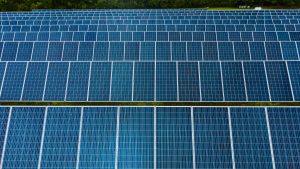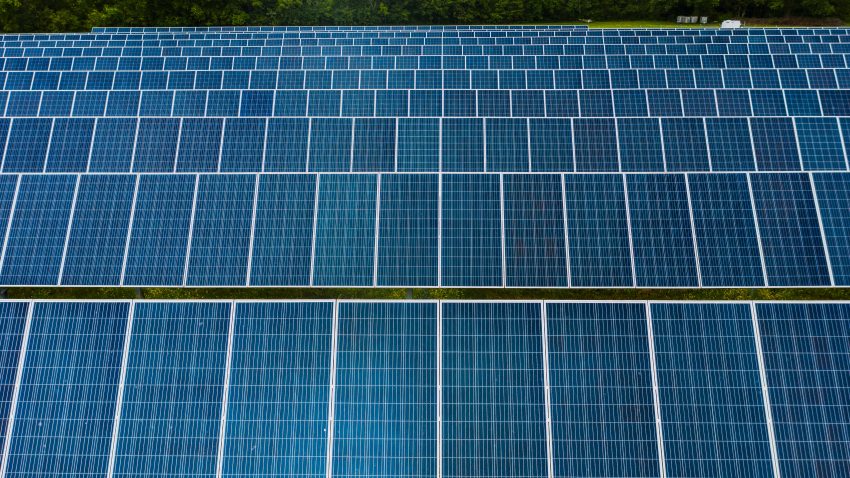How Much is a Solar System for a 2000 sq ft House?
Solar energy has become an increasingly popular choice for homeowners looking to reduce their carbon footprint and energy bills. If you own a 2000 sq ft house and are contemplating the switch to solar power you might be wondering about the associated costs. In this comprehensive guide we’ll break down the factors influencing the cost of a solar system estimate your energy requirements explore types of solar systems delve into the cost breakdown discuss return on investment financing options hiring professionals versus DIY installation maintenance costs environmental benefits common misconceptions and even provide case studies and future planning tips.
- Introduction
- Brief Explanation of Solar Systems
Solar systems harness energy from the sun to generate electricity for homes. These systems consist of solar panels inverters and other components that convert sunlight into usable power. As technology advances and environmental consciousness grows more homeowners are turning to solar energy.
- Growing Interest in Solar Energy for Homes
With the increasing awareness of climate change and the desire to reduce dependence on traditional energy sources there a surge in interest in residential solar installations. Homeowners are not only seeking ecofriendly alternatives but also looking for ways to save on longterm energy costs.
- Factors Influencing Solar System Cost
- House Size and Energy Needs
The size of your house and your daily energy consumption significantly impact the cost of a solar system. Larger homes generally require more extensive systems to meet their energy demands.
- Location and Sunlight Availability
The amount of sunlight your location receives is crucial for the efficiency of solar panels. Areas with more sunlight can generate more electricity affecting the size and cost of your solar installation.
- Type of Solar Panels and Technology
Advancements in solar technology have led to various types of panels each with its own set of benefits and costs. The type of panels you choose can influence the overall expense of the system.
- Incentives and Rebates
Government incentives and rebates can significantly reduce the upfront cost of installing a solar system. Researching available incentives in your area is essential for budget planning.
III. Estimating Energy Requirements
- Calculating Energy Consumption for a 2000 sq ft House
Understanding your home energy needs is crucial for determining the appropriate size of your solar system. Evaluate your monthly kWh consumption to make an informed decision.
- Understanding KilowattHours kWh
Solar systems are sized in kilowatts kW and energy consumption is measured in kilowatthours kWh. Knowing these units is essential for estimating the size and cost of your solar installation accurately.
- Types of Solar Systems
- GridTied Systems
Gridtied systems are connected to the local power grid allowing homeowners to draw electricity when their solar panels don’t produce enough. These systems are costeffective but don’t provide energy during power outages.
- OffGrid Systems
Offgrid systems operate independently of the grid relying solely on solar energy and often incorporating battery storage. While offering energy independence these systems require more upfront investment.
- Hybrid Systems
Hybrid systems combine elements of gridtied and offgrid systems providing a balance between energy independence and reliability.
- Cost Breakdown
- Solar Panels and Installation
The cost of solar panels and professional installation is a significant portion of the total expense. Research various panel brands and installation companies to find the best balance of quality and affordability.
- Inverters and Batteries
Inverters convert solar energy into usable electricity while batteries store excess energy for later use. Choosing highquality inverters and batteries is crucial for the longterm performance of your solar system.
- Permitting and Labor
Obtaining the necessary permits and hiring skilled labor for installation contribute to the overall cost. Factor in these expenses when budgeting for your solar project.
- Return on Investment ROI
- Calculating ROI for Solar Systems
While the initial investment may seem high calculating the return on investment over time reveals the costeffectiveness of solar systems. Consider longterm savings on energy bills and potential resale value.
- LongTerm Savings
Solar systems typically pay for themselves through energy savings over the years. Understanding the longterm financial benefits is crucial for making an informed decision.
VII. Financing Options
- Government Loans and Grants
Governmentbacked loans and grants can make solar installations more affordable. Explore available financing options and take advantage of programs that support renewable energy initiatives.
- Solar Financing Programs
Many solar companies offer financing programs that allow homeowners to pay for their solar systems over time. Compare interest rates and terms to find the best financing option for your budget.
- Leasing Options
Leasing a solar system is an alternative for those who prefer not to make a substantial upfront investment. While this option reduces initial costs it may limit potential longterm savings.
VIII. Hiring a Professional Installer
- Importance of Hiring a Reputable Installer
Choosing a reputable and experienced installer ensures the proper design and installation of your solar system. Research customer reviews and ask for references before making a decision.
- Researching and Comparing Quotes
Obtain quotes from multiple installers to compare costs and services. The cheapest option may not always be the best so consider the overall value and reputation of each installer.
- DIY Solar Installation
- Pros and Cons
While some homeowners opt for a doityourself approach to save money DIY solar installations come with risks. Consider the complexity of the installation process and potential challenges before deciding to go the DIY route.
- Ensuring Safety and Compliance
Ensuring the safety of your installation and compliance with local regulations is paramount. DIY projects should only be undertaken by those with the necessary skills and knowledge.
- Maintenance Costs
- Regular Maintenance Requirements
Solar systems require minimal maintenance but regular checks are necessary to ensure optimal performance. Budgeting for occasional maintenance helps prevent costly issues down the line.
- Budgeting for Unexpected Repairs
While solar systems are generally lowmaintenance unexpected repairs can arise. Having a budget for potential repairs ensures that your system remains operational and efficient.
- Environmental Benefits
- Reduced Carbon Footprint
Switching to solar power significantly reduces your carbon footprint contributing to a cleaner environment. Highlight the environmental benefits of solar energy to emphasize its positive impact.
- Contribution to Renewable Energy
Choosing solar energy supports the transition to renewable energy sources reducing reliance on nonrenewable fossil fuels. Emphasize the role homeowners play in creating a more sustainable future.
XII. Common Misconceptions
- Solar Systems Are Only for Sunny Climates
Contrary to popular belief solar systems can be effective in various climates. While they perform optimally in sunny regions advancements in technology allow for energy generation even in less sunny areas.
- High Upfront Cost Myth
The misconception that solar systems have a prohibitively high upfront cost is debunked by considering longterm savings and available financing options.
XIII. Case Studies
- RealLife Examples of Solar Installations
Explore reallife case studies of homeowners who have successfully implemented solar systems. These examples provide insight into different installation scenarios and their outcomes.
- Customer Testimonials
Reading testimonials from other homeowners can help you gauge the satisfaction and performance of specific solar systems and installation companies.
XIV. Planning for the Future
- Advancements in Solar Technology
Stay informed about the latest advancements in solar technology. Upgrading your system in the future can enhance efficiency and further reduce longterm costs.
- Upgrading Existing Systems
For homeowners with existing solar installations upgrading components or expanding the system can accommodate changing energy needs and take advantage of improved technology.
- Final Word
- Recap of Key Points
In understanding the factors influencing the cost of a solar system for a 2000 sq ft house is essential for making an informed decision. Consider your energy needs location and financing options to determine the most suitable solar solution for your home.
- Encouragement for Exploring Solar Options
Embrace the opportunity to contribute to a sustainable future while enjoying longterm energy savings. Exploring solar options is a step towards reducing your environmental impact and gaining energy independence.
FAQs
- How much does a solar system for a 2000 sq ft house cost on average?
- The cost varies based on factors like location energy needs and type of system. On average it can range from $15000 to $25000.
- Are there government incentives available for installing a solar system?
- Yes many governments offer incentives tax credits and rebates to promote solar energy adoption. Check with local authorities for specific programs.
- Is DIY solar installation recommended for homeowners?
- DIY installation is possible for those with the necessary skills but hiring a professional ensures safety and compliance with regulations.
- What is the typical lifespan of a solar system?
- Solar systems can last 25 years or more. Regular maintenance and quality components contribute to their longevity.
- Can I sell excess energy back to the grid with a solar system?
- In many locations yes. Net metering allows homeowners to receive credit for excess energy fed back into the grid.

Source of Image: https://www.pexels.com/photo/rows-of-solar-modules-in-photovoltaic-power-station-4320480/
